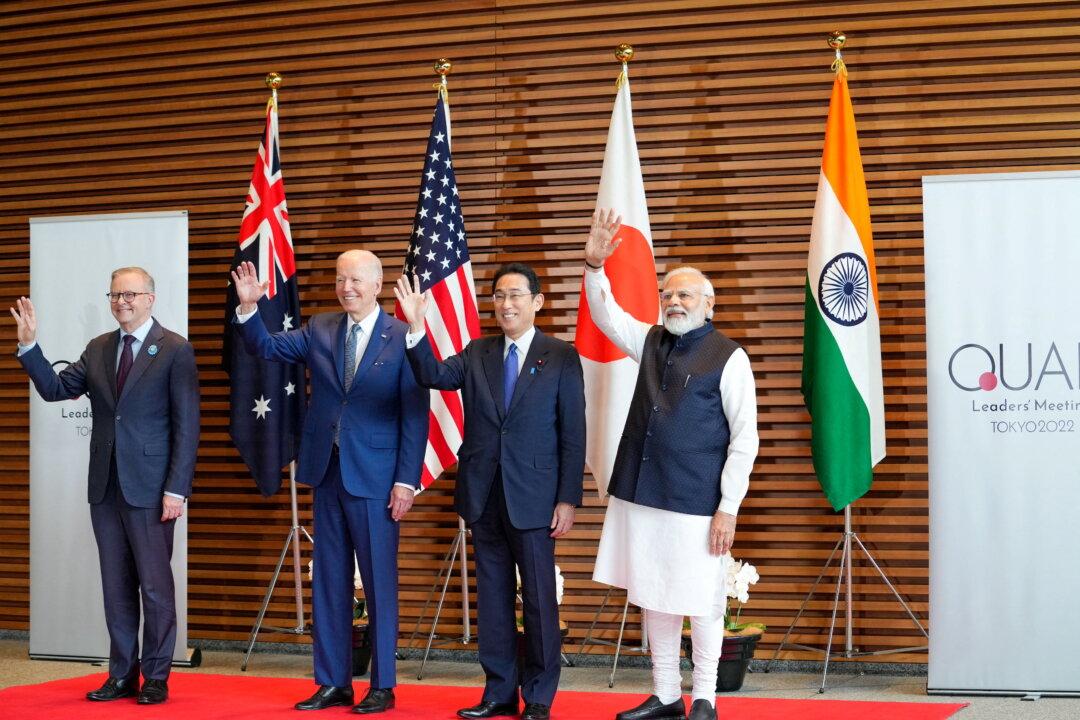The leaders of the “Quad”—the United States, Japan, Australia, and India—on Tuesday unveiled a maritime security initiative to better track illegal fishing and “dark shipping” in the Indo-Pacific.
The initiative, dubbed the Indo-Pacific Partnership for Maritime Domain Awareness (IPMDA), was unveiled during the Quad meeting in Tokyo. It will enable the nations to “fully monitor” and uphold a free and open Indo-Pacific.





